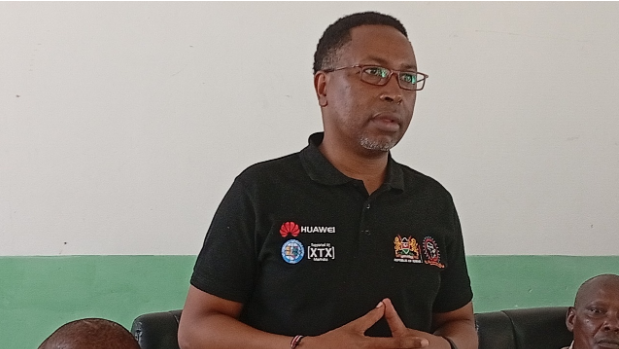

The Centre for Mathematics, Science and Technology Education in Africa has called on the national government to prioritise and increase funding towards the retraining and retooling of teachers.
This is to ensure effective implementation of the Competency-Based Curriculum as it continues to roll out across the country.
The CBC, which replaced the long-standing 8-4-4 system, aims to nurture learners’ abilities and talents through a more practical, student-focused approach.
It places strong emphasis on developing competencies such as critical thinking, creativity, problem-solving, and collaboration—skills considered essential for the 21st-century learner.
According to CEMASTEA’s deputy coordinator for Stem, Martin Mungai, there is an urgent need to enhance the capacity of teachers through sustained professional development.
Speaking at the close of a week-long workshop for Lamu county secondary school principals, Mungai emphasised that the success of the CBC—particularly as it transitions into the higher junior secondary grades—largely depends on how well teachers are prepared to implement the new curriculum effectively.
“With the CBC now moving into Grade 10, the government must act swiftly to ensure teachers are adequately supported. This includes not only training them in content delivery but also equipping them with the necessary tools and infrastructure such as science laboratories, digital learning materials, and teaching aids,” Mungai said.
He noted that the CBC, which places strong emphasis on science, technology, engineering, and mathematics (Stem), demands a shift from traditional teaching methods to more practical, hands-on learning approaches.
For this transition to be successful, teachers must be provided with ongoing training opportunities that keep them aligned with the evolving demands of the curriculum.
“There is a real need for teachers, particularly those in Junior Secondary Schools, to undergo refresher training. This will enable them to handle Stem subjects more confidently and ensure that learners receive the best quality education under the CBC model,” he added.
Mungai also stressed the importance of a mindset shift among educators, calling on them to embrace CBC positively.
He acknowledged that change often comes with challenges but reiterated that with the right support systems in place, teachers can become the strongest drivers of the new curriculum.
“Teachers must approach CBC with a sense of ownership and purpose. Their attitude towards the curriculum will either hinder or enhance its successful implementation,” he said.
Lamu county deputy director of education Shumi Ali Mohammed underscored the importance of workshops like the one held in Lamu, noting that they play a critical role in demystifying the CBC and empowering school leaders with knowledge and skills on curriculum implementation.
She further highlighted that the success of the CBC is not solely the responsibility of teachers, but requires a collaborative approach involving school administrators, parents, and the broader community.
Shumi revealed that the Ministry of Education is also working to enhance sensitisation efforts at the county and subcounty levels to ensure all stakeholders are aligned in supporting the curriculum.
“We are encouraging dialogue and awareness creation among parents and guardians, so that they too can play an active role in their children’s learning journey under CBC. The curriculum is designed to be learner-centered, and that means everyone involved in a child’s education must understand and support the approach.”
Despite the challenges that have accompanied the implementation of the CBC since its introduction, Shumi expressed optimism that with continued government support, a positive attitude from teachers, and enhanced public awareness, the CBC can achieve its goal of producing more competent, innovative, and skilled graduates.








